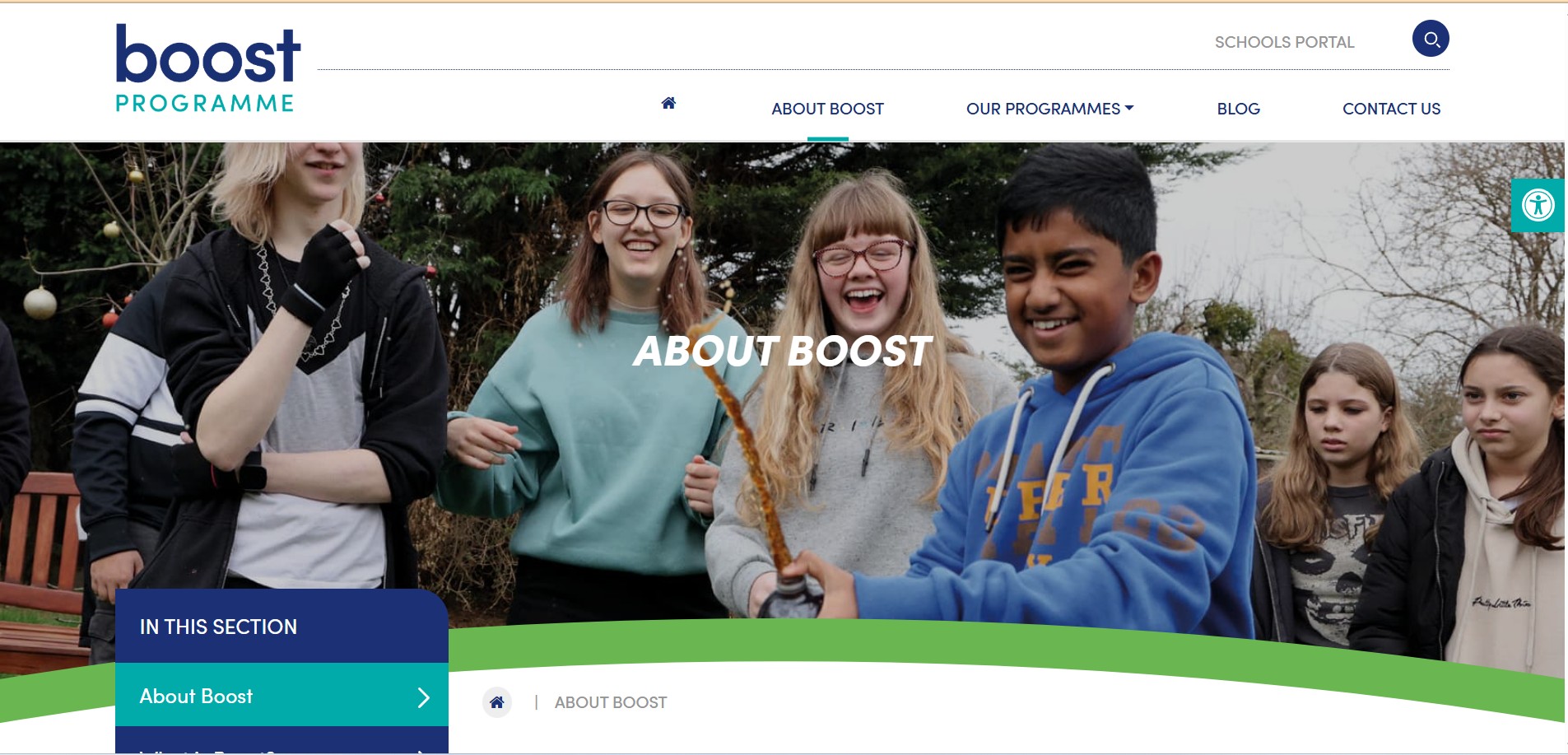Boost Programme
The Boost programme is a transformative self-leadership initiative that I co-designed while working with Gloucestershire Constabulary. This peer-led programme empowers young people aged 9 to 18 to navigate daily challenges by enhancing their emotional literacy, self-regulation, and resilience. Older students, trained as group leaders, deliver the programme to younger peers, creating impactful peer-to-peer learning experiences. Through interactive activities and reflective discussions, participants are encouraged to recognise their inner strengths and take proactive steps toward personal growth and positive decision-making.
Challenge
Youth services across the UK are grappling with increasing demand amidst diminishing resources. Gloucestershire Constabulary identified the need for a preventative programme that could:
- Efficiently reach a broad spectrum of young people
- Address emerging mental health and behavioural concerns before they escalate
- Provide a robust evidence base to support continued funding
- Establish measurable outcomes for long-term evaluation
Approach
As the lead evidence-base author for this project, I developed a comprehensive foundation grounded in:
- Interdisciplinary research: Drawing from psychology, neuroscience, trauma studies, and educational theory
- Practical implementation: Ensuring theoretical models could be effectively applied in diverse settings
- Outcome measurement: Developing clear metrics to assess impact and effectiveness
- Security-conscious design: Implementing appropriate data protection measures for working with vulnerable young people
The programme’s design prioritised accessibility, making complex concepts relatable through age-appropriate language and activities. Security measures were integrated from the outset to protect sensitive participant data while enabling effective evaluation.
Implementation
The Boost programme is a transformative self-leadership initiative designed for young people aged 9 to 18. Older students, trained as group leaders, deliver the programme to younger peers, facilitating impactful peer-to-peer learning experiences.
The programme has been successfully delivered to thousands of children and young people across Gloucestershire through:
- School-based delivery, flexible model
- Targeted support for at-risk individuals
- Community outreach events
Results
Qualitative feedback indicates positive impacts on participants’ emotional literacy, self-regulation, and overall wellbeing. Educators and facilitators have observed enhanced confidence and resilience among students, as well as improved peer relationships and communication skills.
Security Focus
A critical aspect of the Boost programme was ensuring the security and privacy of all participants. Key security measures included:
- Secure data collection processes with robust anonymisation
- Safegaurding lead, safeguarding training, policy, and DBS
- Privacy-focused evaluation mechanisms that protected participant identity
- Comprehensive staff training on data protection regulations
- Regular security audits throughout the programme lifecycle
Legacy
The Boost evidence base has become a model for other regions looking to implement similar initiatives. The programme’s success demonstrated how theory-informed, evidence-based interventions can create meaningful impact at scale while maintaining appropriate safeguarding and security protocols.
The international recognition received at the Tampere conference in Finland (2024) has created opportunities for the programme’s methodology to be adapted and implemented in other countries, with appropriate cultural and regional modifications.
Available Resources
For organisations interested in learning more about the Boost programme approach:
- Executive summary of evidence-base frameworking
- How to underpin a programme with an evidence-based model
- Evaluation methodologies overview
- Implementation guide for organisations (with best practices)
- Case studies demonstrating impact
Please contact me for more information about implementing similar evidence-based programmes in your organisation.
